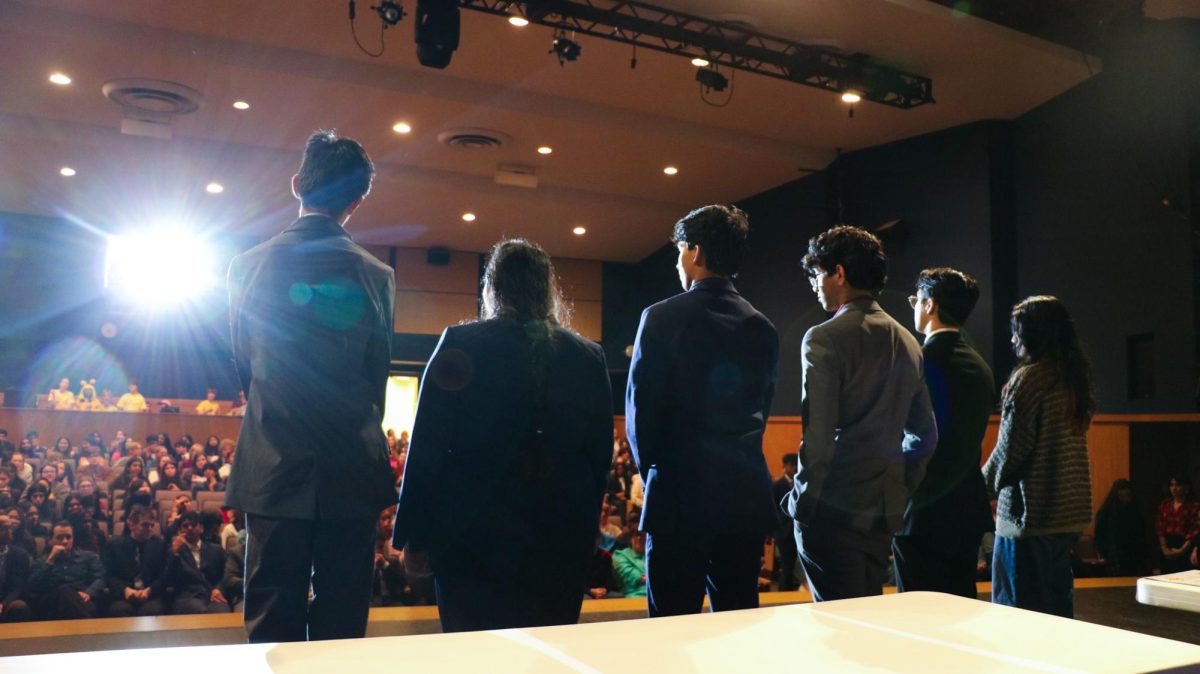By Katherine Ren
A faint echo of daytime television converses from the back room. The afternoon sun’s rays highlight a pair of bifocals resting atop aged sheet music near a Steinway grand. Miscellaneous trinkets and travel guides lay displayed across the coffee table next to dozens of family photos.
Nearly a decade’s worth of sketches hang on a back wall, each encased in a plastic frame. The sketches whimsically portray the same two individuals in many different settings. A closer look reveals that each drawing is dated and labeled with a city and country.
This is Seth Wissner’s Clayton home – an abode decorated with nearly a century’s worth of experience and memories. With an amalgam of mementos and photos from a lifetime’s worth of traveling, Wissner’s home impressions the mystery of “grandpa’s attic,†the grandiose of a museum exhibit, and the warmth of a childhood home.
Wissner was born in 1922 in St. Louis City. After attending Normandy High School, Wissner went on to attend Washington University in St. Louis’ pre-medical program. After finishing his undergraduate degree, Wissner continued at WashU to pursue his medical degree.
Wissner started medical school at the onset of World War II. Shortly after enrolling, Wissner volunteered to join the United States Army.
“It was the beginning of subscription and everyone had to go into the war in some way or other,†Wissner said. “So I volunteered to go in as a medic. I was in [medical] school when the army decided that they wanted to see that we were all involved in one way or another.â€
Wissner, along with other medical students, were sent to an army program on the weekends where they were trained.
“We were shown propaganda films on how terrible the Japanese were,†Wissner said. “We were also given military instruction and shown how to march.â€
Shortly after the atomic bombings of Hiroshima and Nagazaki, Wissner was sent to Yokohama, Japan.
“We were sent there to offer aid to American GI’s,†Wissner said. “We had taken over a department store and converted it into a hospital. But we were instructed not to take care of the Japanese at all. We were to just take care of the Americans. It was rather hard not to help the Japanese.â€
Wissner recalls that he created friendships with many of the locals despite the supposed restrictions and discouragement.
“We were discouraged from having friendship with them [the Japanese inhabitants],†Wissner said. “I was a musical person, I played the piano. And so I got to know quite a few of the musicians and we became friendly and they entertained us in their homes. We were not encouraged to create friendships in that way at all, but it was inevitable.â€
Wissner was stationed in Yokohama for two years before coming back to the states to start his residency at WashU. It was also during this time in which Wissner began to travel frequently.
“[World War II] gave me the opportunity to gain a sharp interest in foreign life and culture,†Wissner said. “The young doctors that I was with hated it and wanted to go home, but I thought it was wonderful.â€
When asked to recall the number of countries he has traveled to, Wissner is at a loss for words.
“Oh I don’t know,†Wissner said. “At least more than 50 or 80 countries. I’ve been to all the continents, though I was only in Antarctica for a short period of time. I met my wife in Paris. She was an architectural student at WashU and was in Europe for a year to finish her occupational training. We met at a small cafe, it was just a casual encounter.â€
Shortly after marrying his wife, Ruth Waters, Wissner continued to travel around the world with her.
“She had traveled a great deal in Europe and we eventually went back to all of the places she had really liked while she was there alone,†Wissner said. “Portugal, Spain, France, England.â€
When asked to recount particular experiences that had significantly influenced his life, Wissner is once again at a loss for words. Watching him as he silently reminisces in attempts to conjure up a story, it is as if there are simply too many memories and encounters for him to draw upon.
“I was a doctor for 45 years,†Wissner said. “I’ve been living in this house for 52 years. I have no regrets. I would tell young people to experience life. And if they can decide on what they really like, to pursue it.â€













